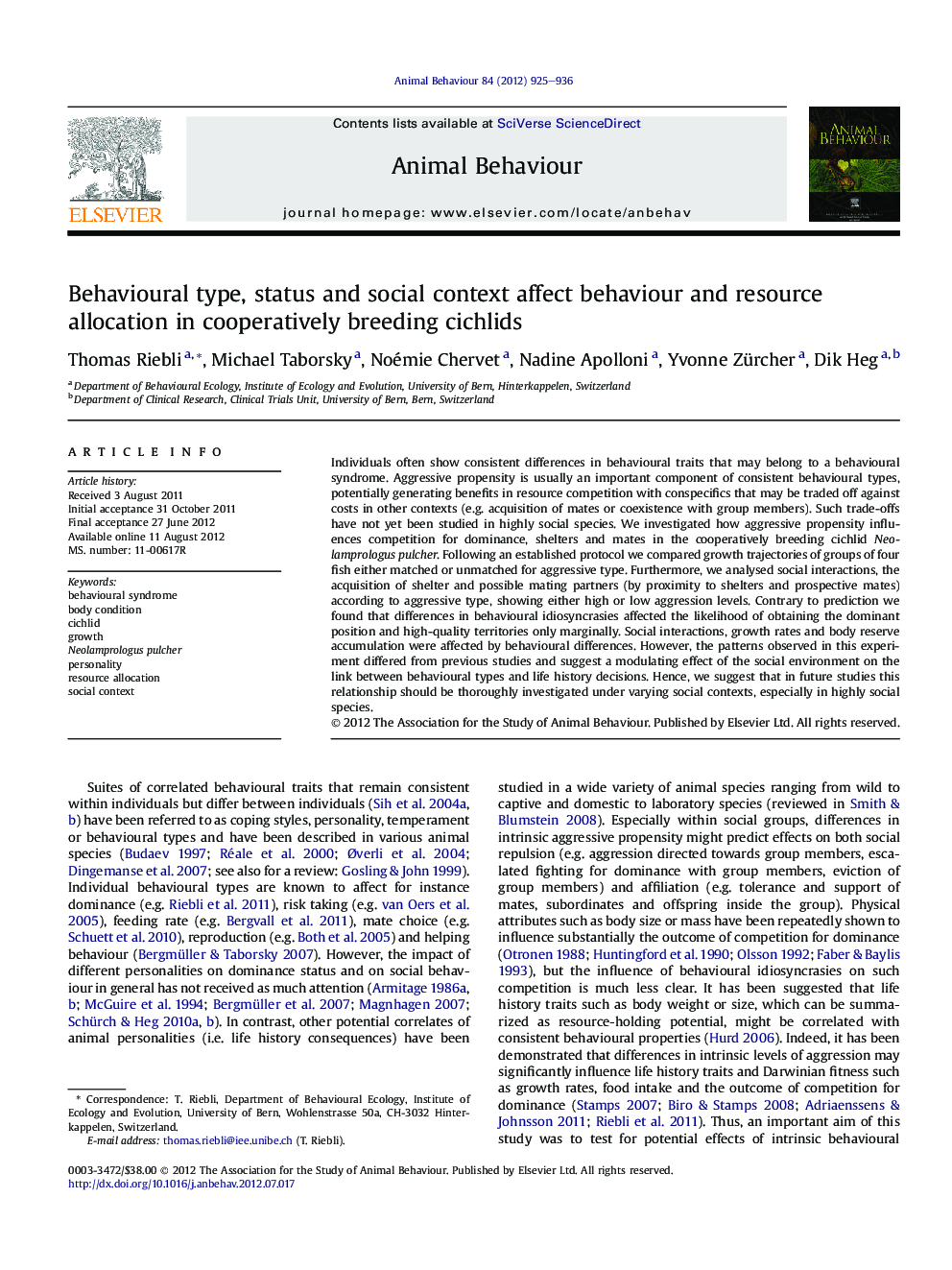| کد مقاله | کد نشریه | سال انتشار | مقاله انگلیسی | نسخه تمام متن |
|---|---|---|---|---|
| 2416531 | 1104279 | 2012 | 12 صفحه PDF | دانلود رایگان |

Individuals often show consistent differences in behavioural traits that may belong to a behavioural syndrome. Aggressive propensity is usually an important component of consistent behavioural types, potentially generating benefits in resource competition with conspecifics that may be traded off against costs in other contexts (e.g. acquisition of mates or coexistence with group members). Such trade-offs have not yet been studied in highly social species. We investigated how aggressive propensity influences competition for dominance, shelters and mates in the cooperatively breeding cichlid Neolamprologus pulcher. Following an established protocol we compared growth trajectories of groups of four fish either matched or unmatched for aggressive type. Furthermore, we analysed social interactions, the acquisition of shelter and possible mating partners (by proximity to shelters and prospective mates) according to aggressive type, showing either high or low aggression levels. Contrary to prediction we found that differences in behavioural idiosyncrasies affected the likelihood of obtaining the dominant position and high-quality territories only marginally. Social interactions, growth rates and body reserve accumulation were affected by behavioural differences. However, the patterns observed in this experiment differed from previous studies and suggest a modulating effect of the social environment on the link between behavioural types and life history decisions. Hence, we suggest that in future studies this relationship should be thoroughly investigated under varying social contexts, especially in highly social species.
► Consistent behavioural differences did not affect the chance of achieving dominance.
► Behavioural idiosyncrasies lead to diverging behavioural responses.
► Fitness consequences of behavioural types are more flexible than assumed.
► Important effects of detailed social context between life history and personality.
Journal: Animal Behaviour - Volume 84, Issue 4, October 2012, Pages 925–936